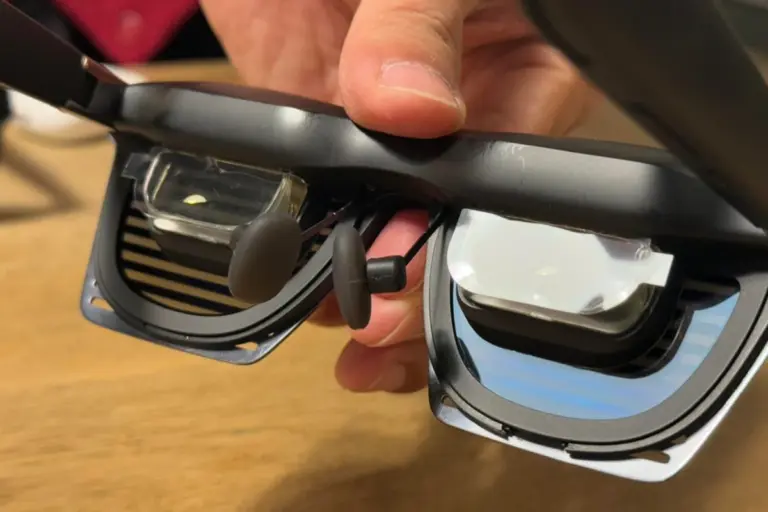Elgato Stream Deck Studio: Ultimate Broadcast Controller for Professionals
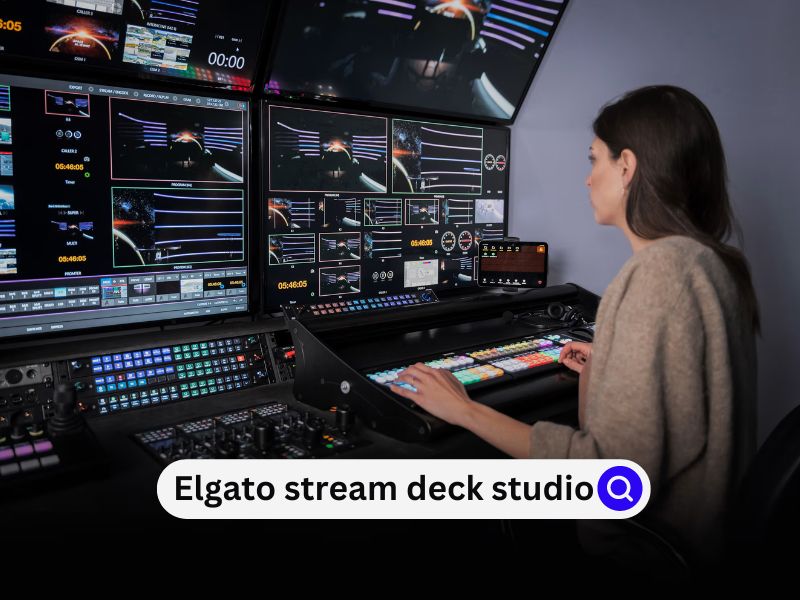
Elgato Stream Deck Studio: The Ultimate Broadcast Tool for Professionals
Elgato has revealed its most current expansion to the Stream Deck family the Stream Deck Studio, a groundbreaking jump in broadcast innovation and proficient control frameworks. Estimated at $899.99, this show isn’t fair an overhaul from past forms but a completely unused course of gadgets outlined particularly for complex broadcast situations. It’s more than an apparatus for streamers or solo substance makers; the Stream Deck Studio could be a strong control center built for experts overseeing complex workflows including a run of equipment, computer programs, and media bolsters.
Let’s dive into what makes the Stream Deck Studio such a unique offering and why it could redefine how broadcast teams handle live productions.
Stream Deck Evolution: From Desks to Broadcast Studios
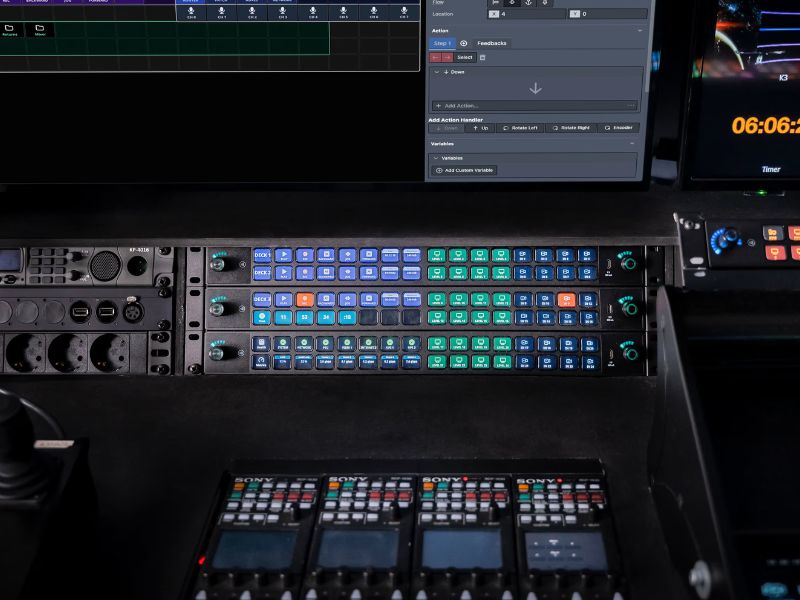
Elgato to begin with made waves with its unique Stream Deck, a compact controller outlined to improve the workflows of streamers, substance makers, and gamers. Highlighting 15 customizable LCD keys, the Stream Deck permitted clients to form easy routes for controlling programs, propelling media, and indeed computerizing complex tasks all from a compact, desk-friendly device.
In any case, the Stream Deck Studio marks a noteworthy advancement within the item line. With 32 LCD keys and extra usefulness, the Studio show takes things to another level. It’s particularly planned for broadcast studios and proficient situations where overseeing different workflows, equipment integrative, and computer program frameworks is the standard. Think large-scale preparations, live occasions, and corporate broadcasts. Indeed major companies like Virgin Atlantic are allegedly utilizing Stream Deck setups to streamline communication frameworks and assist in illustrating how far-reaching the technology’s applications have ended up.
Key Features of the Stream Deck Studio
So what sets the Stream Deck Studio separated from its forerunners and competitors? A combination of equipment overhauls, unused program integration, and network highlights make it the perfect choice for complex broadcasting setups.
1. 32 Customizable LCD Keys and Rotary Dials
At the heart of the Stream Deck Studio are 32 fully customizable LCD keys, arranged in two rows. Each key can be programmed with specific actions, shortcuts, or software controls, just like the original Stream Deck, but with significantly more real estate to work with. This increase in buttons allows for far greater flexibility in live production environments where every second counts and complex actions need to be performed with a single press.
In addition to the keys, the Stream Deck Studio incorporates two revolving dials that offer indeed more control over different components such as volume alteration, scene moves, and camera exchange. This additional material control makes a difference in streamlining the client encounter, particularly amid live broadcasts.
2. Designed for Professional Studio Racks
One of the foremost striking physical changes is the measure and plan of the Stream Deck Studio. At 19 inches long, the gadget is built to fit into all-inclusive studio racks, coordinating consistently with other broadcast gear. This rack-mountable plan reflects the Stream Deck Studio’s proficient center, situating it as an apparatus that can sit near high-end blenders, switchers, and broadcast adapt.
3. Advanced Connectivity Options
The network is another region where the Stream Deck Studio sparkles. Prepared with a single USB-C harbor on the front and two extra USB-C ports on the back, the gadget offers adaptability in how it interfaces with your framework. One of these USB-C ports is for the information association to the PC, whereas the others can be utilized for control and extra gadget associations.
The Stream Deck Studio moreover highlights a 25W Power-over-Ethernet (PoE) connector, permitting it to be fueled using Ethernet, lessening cable clutter and making integration into bigger arranged setups less demanding. This streamlined network is basic for proficient broadcast situations where various gadgets must work in concordance.
Pros and Cons:
| Pros | Cons |
|---|---|
| 32 customizable LCD keys for versatility | High price point at $899.99 |
| Two rotary dials for additional control | Designed for professional use, overkill for casual users |
| Rack-mountable design for studio integration | Requires PoE or external power source |
| USB-C connectivity and Power over Ethernet (PoE) | Buttons software has paid tiers |
| Compatible with Companion and Buttons software | May require an additional learning curve |
| Scalable setup with multiple units | Large sizes may not fit smaller setups |
| RFID and NFC reader for user authentication | Enterprise pricing is not publicly available |
| Streamlines complex broadcast workflows | Limited to broadcast and large-scale production users |
Powered by Bitfocus Companion and Buttons Software
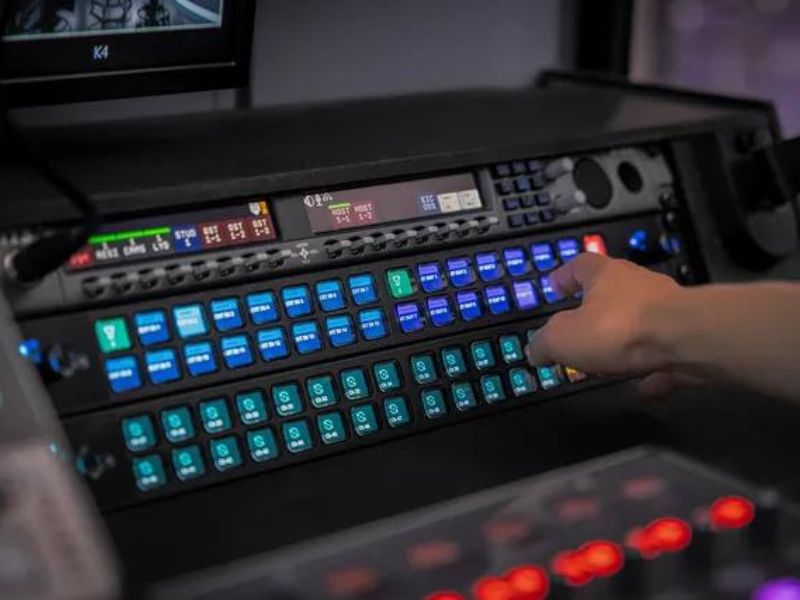
A noteworthy angle of the Stream Deck Studio’s request is its computer program. The controller runs on Bitfocus’ Companion program, which has been a key driver in bringing progressed usefulness to the Stream Deck run. Companion permits different controllers to be associated and arranged remotely through a web browser interface perfect for bigger, more complex setups.
In any case, with the Stream Deck Studio, Elgato presents the alternative to utilize Buttons—an unused, more progressed computer program bundle from Bitfocus built particularly for this demonstration. Buttons give a few premium highlights, such as moment visual input on the LCD keys and the capacity to confirm clients with built-in RFID and NFC perusers. This guarantees that distinctive clients in a broadcast studio can have diverse levels of get-to based on their parts, which is particularly valuable in bigger generation groups.
The companion program is free, whereas Buttons comes with totally different estimating levels: beginning at $9 per month for personal clients and scaling up to $99 per month for a Professional permit. Enterprise-level setups can ask for customized estimating for indeed more strong usefulness.
Expandable and Adaptable for Larger Productions
The Stream Deck Studio isn’t fair a standalone unit; it’s outlined to be a portion of a much bigger, interconnected framework. For large-scale preparations, different Stream Deck Studios can be mounted and connected utilizing the Buttons program, making an indeed more comprehensive control framework. On the off chance that extra buttons are required, clients can coordinate other Stream Deck units, such as the Stream Deck XL, which can be associated through the Studio’s front USB-C harbor.
This versatility is one of the key reasons why the Stream Deck Studio stands out within the world of proficient broadcast tools. It permits clients to extend and customize their setup as required, without having to overtake their whole framework.
Also Read:
- Plaud NotePin Review: AI Voice Recorder with Smart Transcriptions & Summaries
- PS5 Pro Release Date, Price, Features, and Preorders: All You Need to Know
More Than Just for Streamers: A New Broadcast Standard
Elgato’s Stream Deck Studio is situated to become a basic instrument for proficient broadcast situations, taking the center thoughts of the unique Stream Deck and increasing them for a more requesting group of onlookers. Whereas streamers and substance makers can still take advantage of the device’s highlights, the genuine potential of the Stream Deck Studio lies in its flexibility for conventional broadcast settings, live occasion generation, and corporate communication frameworks.
At $899.99, the Stream Deck Studio isn’t a casual buy, but it can be the culminating venture it can be a culminating venture for broadcast experts trying to find a capable, customizable, and versatile arrangement. With Bitfocus’ Companion and Buttons program upgrading its already noteworthy equipment capabilities, the Stream Deco might exceptionally well get to be a modern standard within the world of live broadcasting and media generation.

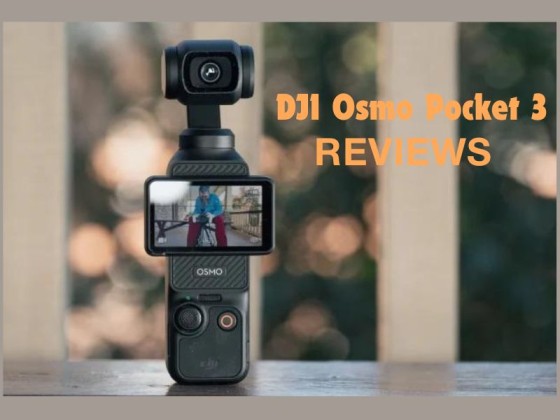
![Ray-Ban Meta Smart Glasses- Must Read Before Buy [2024] Ray-Ban Meta Smart Glasses](https://mediatalky.com/wp-content/uploads/2024/04/Ray-Ban-Meta-Smart-Glasses-768x512.png)
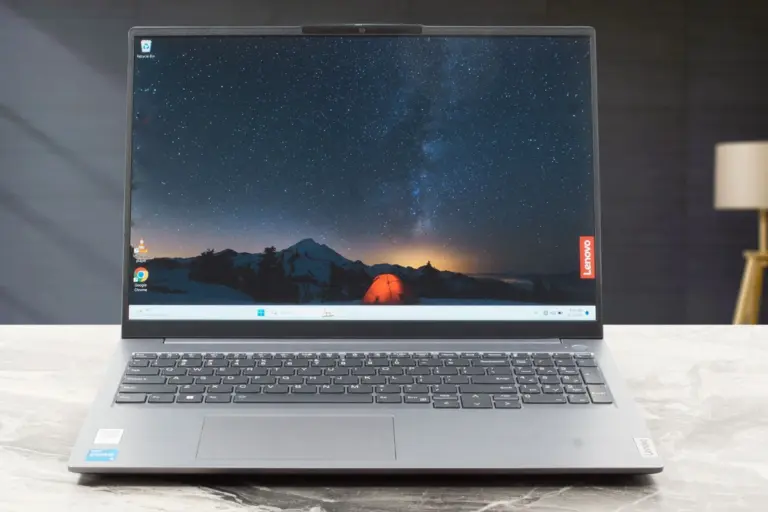
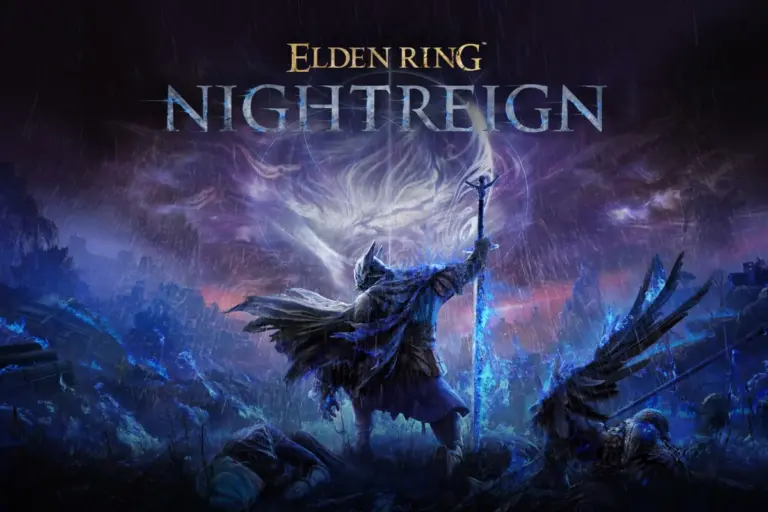
![How To Make Smooth Stone In Minecraft- Guide, With Command [2024] How To Make Smooth Stone In Minecraft](https://mediatalky.com/wp-content/uploads/2024/04/minecraft-768x439.webp)
